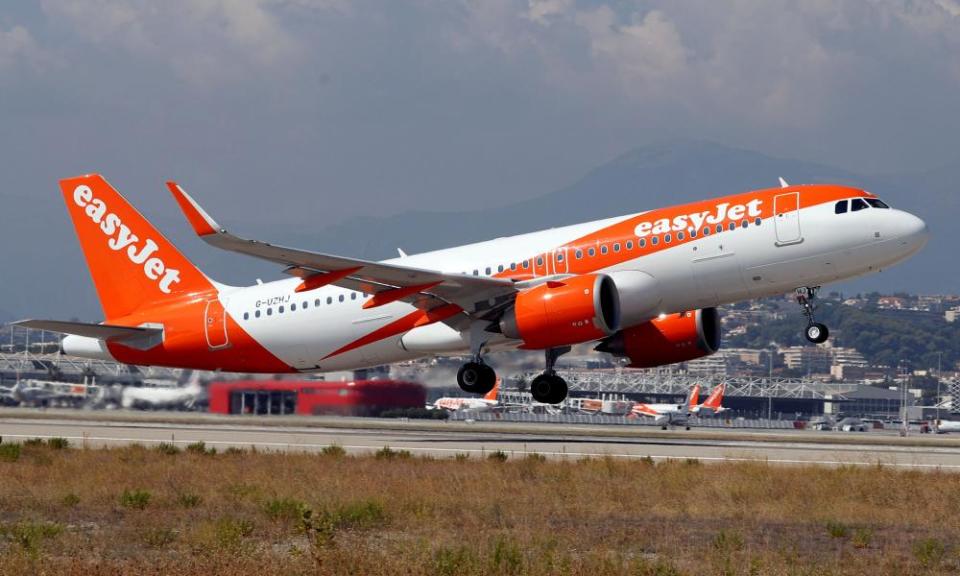EasyJet expects £1.1bn loss but winter sun bookings soar 400%

EasyJet expects to make a pretax loss of more than £1bn this year but said its recovery was under way, with a 400% surge in demand for winter sun breaks after the UK government relaxed travel restrictions.
The low-cost airline is adding 100,000 seats thanks to the popularity of destinations such as Egypt, Turkey and the Canary Islands, and expects to fly up to 70% of 2019 levels in the three months to 31 December.
October half-term bookings have also been strong, particularly to the Canaries where easyJet has increased its capacity to 140% of 2019 levels. Bookings for the first half are double those of the same time last year.
Johan Lundgren, the easyJet chief executive, said: “It is clear recovery is under way. Business travel is returning to easyJet with corporates and SMEs attracted by our value, network and approach to sustainability. We have seen city breaks beginning to return alongside growing demand for leisure travel from customers looking for flights and holidays to popular winter sun destinations including Egypt and Turkey.”
The UK transport secretary, Grant Shapps, said last week he wanted to scrap costly PCR tests for international travellers returning to England by the October half-term, instead requiring a cheaper lateral flow test on day two. The government has also scrapped the pre-departure test to get back into the UK for fully vaccinated travellers, and cut the number of countries on the red list, which have the toughest restrictions, to only seven.
Lundgren welcomed the changes as a “step in the right direction,” which led to a 400% jump in winter bookings to places such as Egypt and Turkey in the days after the announcement. He said easyJet holidays bookings for next year were more than double those at this time last year.
However, he added that other European countries had moved much faster in removing all testing requirements for fully jabbed travellers, and called on the UK to do the same to allow travel to recover to pre-pandemic levels. In those European countries that have made the change, for example the Netherlands, easyJet is back to flying at pre-Covid levels.
Overall, easyJet ramped up its flying to 58% of its 2019 capacity over the summer holiday season from 17% in the previous quarter. Its loss for the three months to 30 September, its fourth quarter, more than halved, and it expects to make a loss of between £1.14bn and £1.18bn for the year as a whole, meeting analysts’ forecasts.
The carrier recently rebuffed a takeover approach from its rival Wizz Air and shored up its finances with a £1.2bn fundraising, which allowed it to pay down debt to £900m from £2bn. It also managed to achieve £510m of savings over the year, of which almost half will be sustainable.
After being forced to ground their fleets in the early stages of the pandemic, airlines have struggled with a slow recovery in international travel amid the spread of the infectious Delta variant and travel restrictions, even as economies have bounced back.
Lundgren dismissed the potential threat from rival British Airways, which is considering launching a new low-cost subsidiary at Gatwick airport. “We’ve proven we can compete against any airline,” he said. He said easyJet was the second-biggest airline in Europe over the summer when it operated 17.3m seats, and unlike rivals managed to reduce its losses.

 Yahoo Finance
Yahoo Finance 